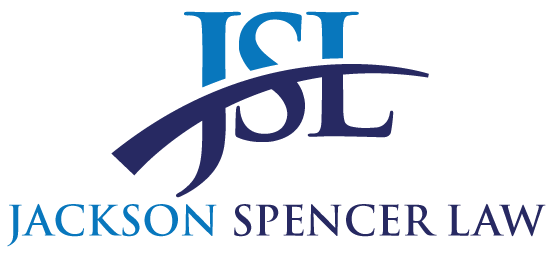As an employee rights attorney, I am ecstatic to share the Supreme Court’s landmark ruling prohibiting discrimination on the basis of sexual orientation. Thanks to this new decision, federal workplace discrimination protections now extend to LGBTQ employees.
Before the decision, the Supreme Court granted certiorari to hear three consolidated discrimination cases:
Bostock v. Clayton County Bd. of Com’rs, 894 F.3d 1335 (2018)
Zarda v. Altitude Express, Inc. 883 F.3d 100 (2018)
EEOC v. RG & GR Harris Funeral Homes, Inc., 884 F.3d 560 (2018)
Each of the three cases were filed by the employees under Title VII alleging unlawful discrimination on the basis of sex. Also, the cases revolved around one question: whether an employer can fire an employee simply for being homosexual or transgender.
Background: The Cases at Stake
To understand the Court’s decision, it is worth knowing what was at stake. In honor of the brave individuals (and their estates) who pressed these causes, I would like to provide a brief background of each case.
Gerald Bostock
Bostock v. Clayton County Bd. of Com’rs, 894 F.3d 1335 (2018)
Gerald Bostock worked for Clayton County, Georgia as a child welfare advocate for at least ten years. Under his leadership, the county won national awards for its work. After more than a decade of dedicated service, Gerald joined a gay recreational softball league, which he participated in after work. Not long after, members of the community started making remarks about Gerald’s participation in the league and his sexual orientation. He was fired shortly thereafter for “conduct unbecoming” a county employee. He filed suit under Title VII of the Civil Rights Act of 1964 for workplace discrimination on the basis of sex. The 11th Circuit held that “Title VII does not prohibit employers from firing employees for being gay” so Bostock’s case was dismissed as a matter of law. The Supreme Court decided to review the 11th Circuit’s decision, and ultimately reversed their decision.
Donald Zarda
Zarda v. Altitude Express, Inc. 883 F.3d 100 (2018)
Donald Zarda was a skydiving instructor who spent several seasons with the New York company, Altitude Express. During a tandem skydiving run, a female indicated that she did not feel comfortable skydiving attached to a man, and Zarda reassured her that he was “100% gay.” Days later, Zarda was fired for revealing his sexual orientation in the workplace. The 2nd Circuit found that Title VII protections did extend to Mr. Zarda’s case and his former employer, Altitude Express appealed to the Supreme Court. The Court affirmed the 2nd Circuit’s holding.
*Mr. Zarda passed away before the Supreme Court heard this case. His estate carried on the litigation on his behalf.
Aimee Stephens
EEOC v. RG & GR Harris Funeral Homes, Inc., 884 F.3d 560 (2018)
Aimee Stephens, a transgender woman, obtained employment with Harris Funeral Homes at a time when she was still presenting herself as a man. After two years of employment with the funeral home, she was treated for despair and diagnosed with gender dysphoria. Her medical professionals recommended that she begin living as a woman. In her sixth year with the funeral home, she wrote a letter explaining to her employer that she planned to live and work full-time as a woman. The funeral home fired her, stating, “this is not going to work out.” The 6th Circuit found that Ms. Stephens was protected under Title VII, but Harris Funeral Homes appealed to the Supreme Court. The Supreme Court affirmed the 6th Circuit’s decision.
*Ms. Stephens also passed away before the Supreme Court heard this case. Litigation continued on her behalf.
The Supreme Court’s Rationale
While I plan to break down the Court’s decision in layman’s terms, I would also like to share some excerpts directly from today’s opinion. Chief Justice Gorsuch delivered the opinion of the Court, with a rationale explained so well that paraphrasing it would probably lose some of its impact.
Without putting words in the Court’s mouth, here are some of the most illuminating statements from the Court’s decision:
“An employer who fires an individual for being homosexual or transgender fires that person for traits or actions it would not have questioned in members of a different sex. Sex plays a necessary and undisguisable role in the decision, exactly what Title VII forbids.”
“An employer who fires a woman, Hannah, because she is insufficiently feminine and also fires a man, Bob, for being insufficiently masculine may treat men and women as groups more or less equally. But in both cases the employer fires an individual in part because of sex. Instead of avoiding Title VII exposure, this employer doubles it.”
“Consider, for example, an employer with two employees, both of whom are attracted to men. The two individuals are, to the employer’s mind, materially identical in all respects, except that one is a man and the other a woman. If the employer fires the male employee for no reason other than the fact the is attracted to men, the employer discriminates against him for traits or actions it tolerates in his female colleague. Put differently, the employer intentionally singles out an employee to fire based in part on the employee’s sex…”
“Or take an employer who fires a transgender person who was identified as a male at birth but who now identifies as a female. If the employer retains an otherwise identical employee who was identified as female at birth, the employer intentionally penalizes a person identified as male at birth for traits or actions that it tolerates in an employee identified as female at birth. Again, the individual employee’s sex plays an unmistakable and impermissible role in the discharge decision.”
“Imagine an employer who has a policy of firing any employee known to be homosexual. The employer hosts an office holiday party and invites employees to bring their spouses. A model employee arrives and introduces a manager to Susan, the employee’s wife. Will that employee be fired? If the policy works as the employer intends, the answer depends entirely on whether the model employee is a man or a woman…that employer’s ultimate goal might be to discriminate on the basis of sexual orientation. But to achieve that purpose the employer must, along the way, intentionally treat an employee worse based in part on that individual’s sex.”
What this Means
Put simply, the Supreme Court’s decision means that employers who must comply with the Civil Rights Act of 1964 cannot discriminate against an employee on the basis of their sexual orientation. Prior to this decision, 21 states had their own laws prohibiting such discrimination, but it was hardly the law of the land.
Here in Texas, we had no explicit statewide non-discrimination laws protecting LGBTQ individuals. This decision changes that. Now the Supreme Court has determined that Title VII of the Civil Rights Act protects individuals from discrimination based on their sexual orientation or transgender status. This means employees cannot be treated differently in the workplace – or during the application or hiring process – simply due to their sexual orientation.
Some LGBTQ activists are declaring today’s decision one of their biggest victories yet, because it applies to all working adults, not just those who wish to marry: a huge win (and step in the right direction) for our country!
At Jackson Spencer Law, we fight for the rights of employees. We are over the moon about this landmark decision and happy to share the good news with our fellow Texans.
If you feel you are experiencing discrimination in the workplace based on your sexual orientation or gender identity, please contact us for more information and a confidential analysis of your case. We are here to fight for your rights!



